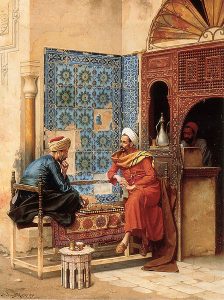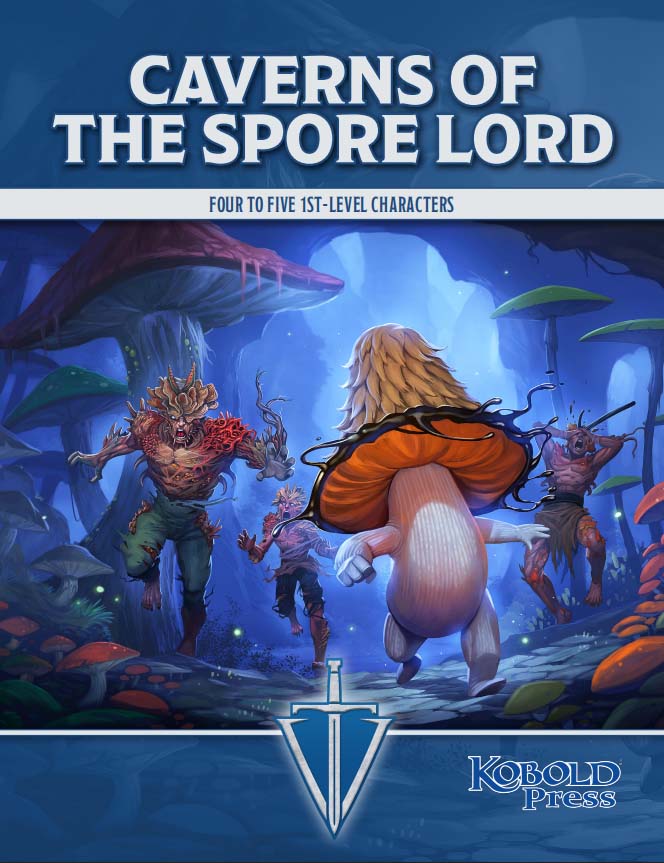 Colin McComb’s Now, the Twist takes a long, hard look at game design.
Colin McComb’s Now, the Twist takes a long, hard look at game design.
__
Weeks ago, we talked about the price of freedom and what it means to have an external code imposed on us. Today, we’ll turn that around and discuss what it means to have an internal code that we use as a guidepost when creating games. I don’t mean the publisher’s or developer’s code—I’m talking about the internal regulator that tells us when we’ve gone too far… or that we need to go further.
It’s All New to Me
One of the defining characteristics of game designers is ego. I’m not talking about pride, mind you, but ego: the notion that what we create has some intrinsic value. If you’re doing this professionally, then this is true, in the objective sense that people are willing to exchange their money for your ideas.
This is both gratifying and worrying, especially if you’re not entirely sure what it is that they like. This is the case in any creative endeavor; it’s part of the reason why a second or third album by musicians is frequently more tentative and unsure of itself than the first, which the musicians simply recorded in a burst of creativity. Still, once you’ve put in some time and people keep buying your work, you start to feel like you have a handle on your work.
This might even be true…
But you also need to keep challenging yourself and pushing yourself to develop new ideas—new mechanics, new worlds, new characters, new ways of presenting your information—because you run the risk of stagnation otherwise. Whether we have earned our professional status because of a facility with words, a keen eye for numbers, a killer imagination, a combination of the three, or some fourth factor is almost irrelevant. Being paid for producing games is heady business, and we owe it to our audience to keep our work fresh and interesting.
What You Tolkien About?
This is despite what some might call the inherent conservatism of tabletop gamers. I don’t mean “conservatism” in a political sense; I’ve met people who identify themselves across all branches of the political spectrum, both as game makers and game players. Instead, I mean the tendency of gamers (and, indeed, most any consumers of entertainment) to stick with the tastes they know they like. Dungeons & Dragons (and its various spinoffs) remains the most popular tabletop RPG although it has changed very, very little in its basic presentation since its inception.
By this, I mean the flavor portion of the game, rather than the rules—the underpinning rules structure has undergone radical transformations from the white-box birth of the hobby to what it is today (though the latest iteration certainly hearkens back to the days of wargaming). Believe it or not, WotC took a huge risk in presenting dragonborn and eladrin as basic character races, and they should be commended for branching into new (for them) territory.
One explanation of gamer conservatism is the popularity of the source material. People who read Tolkien want to play in a world similar to Middle Earth, and for good or for ill, Tolkien’s work has influenced the hobby, mass market media, and other games in a way that still remains hard to quantify. When we designed Planescape: Torment, we specifically made the choice to avoid elves, swords, and dragons, skipping past the usual fantasy tropes to look for other pathways to telling these stories. This is not so much praise for my team—though it was a wonderful team—as it is a statement of the culture. Check this out: for all the great press we got, Torment still hasn’t sold as much as the roughly contemporaneous Baldur’s Gate II.
From a business standpoint, that makes BGII an unqualified success in comparison. If I had to make a cold-hearted business decision about which franchise to continue, I’d really have no choice except to take the one that brought in more money.
Swing Harder, Boy
Yet—and this is the part that works for my argument—10 years after the publication of Torment, it continues to gain in stature. It continues to be listed as one of the most influential computer games of all time. I still get mail about the game. I don’t say this to inflate my ego (no, seriously, I’m not) but to offer some advice:
Explore outside the mainstream. Expose your audience to new ideas, even if it means subverting the standards. Why are we creating an audience for our work? If cold cash is your only basis for pursuing the audience, there are better lines of work to be in. We owe it to our audience and we owe it to our egos to take chances.
If we all walk on the same paths and present the same information, without some new way to present our work, we lose the creative spark that ignites our passion for the work. We lose the right to be legitimately proud of our imaginations. If we do not demand better for our customers, how can we demand better for ourselves?
__
Colin McComb has been making games professionally for two decades now. He got his start at TSR Inc., where he worked on many projects he is still inordinately proud of, including a significant portion of the Planescape line and the co-creation of the Birthright campaign setting. After TSR, he went to Interplay in California, where he helped design the classic computer RPG Planescape: Torment. He is currently working on developing games for his own company, 3lb Games.


*cough* Planescape: Torment was one of the best games ever, in my ever-so humble opinion. ^_^
At the risk of turning this into a Torment lovefest (how’s that for a band name), which I know Colin would just hate, I *loved* Torment. For me, BG was fun but, ultimately, forgettable. Torment was one of the few games I ever actually finished. I still remember the game very fondly.
Since I didn’t get royalties, residuals, or any sort of monetary consideration past the salary, I have absolutely no objection to taking the less tangible rewards that come with having made Torment. :) Thanks, folks.